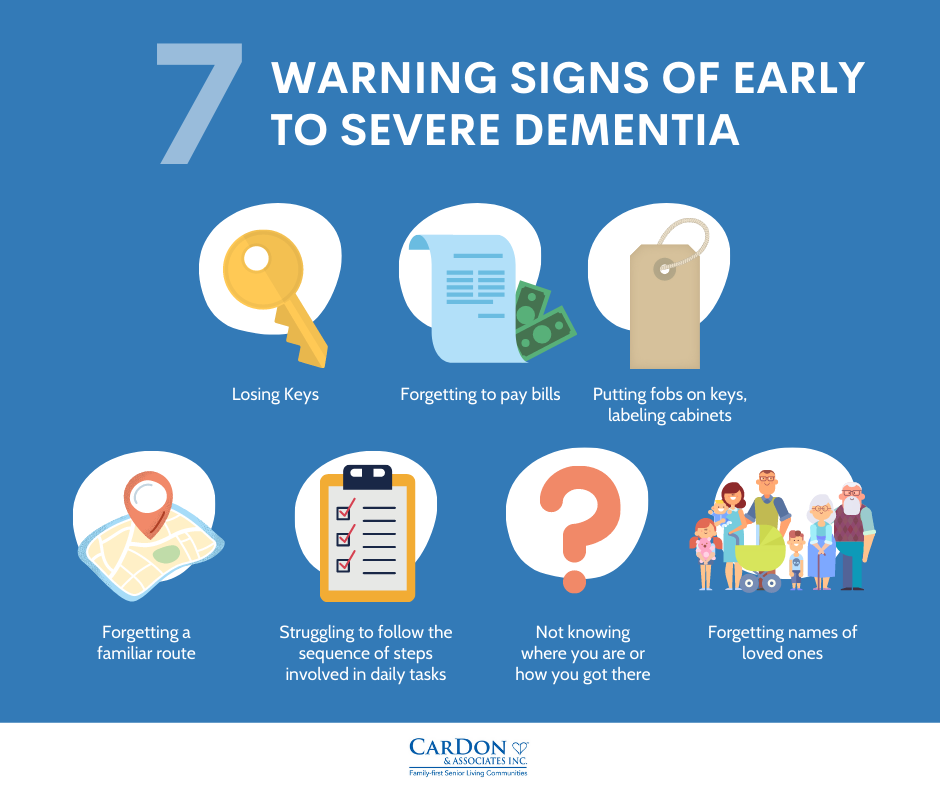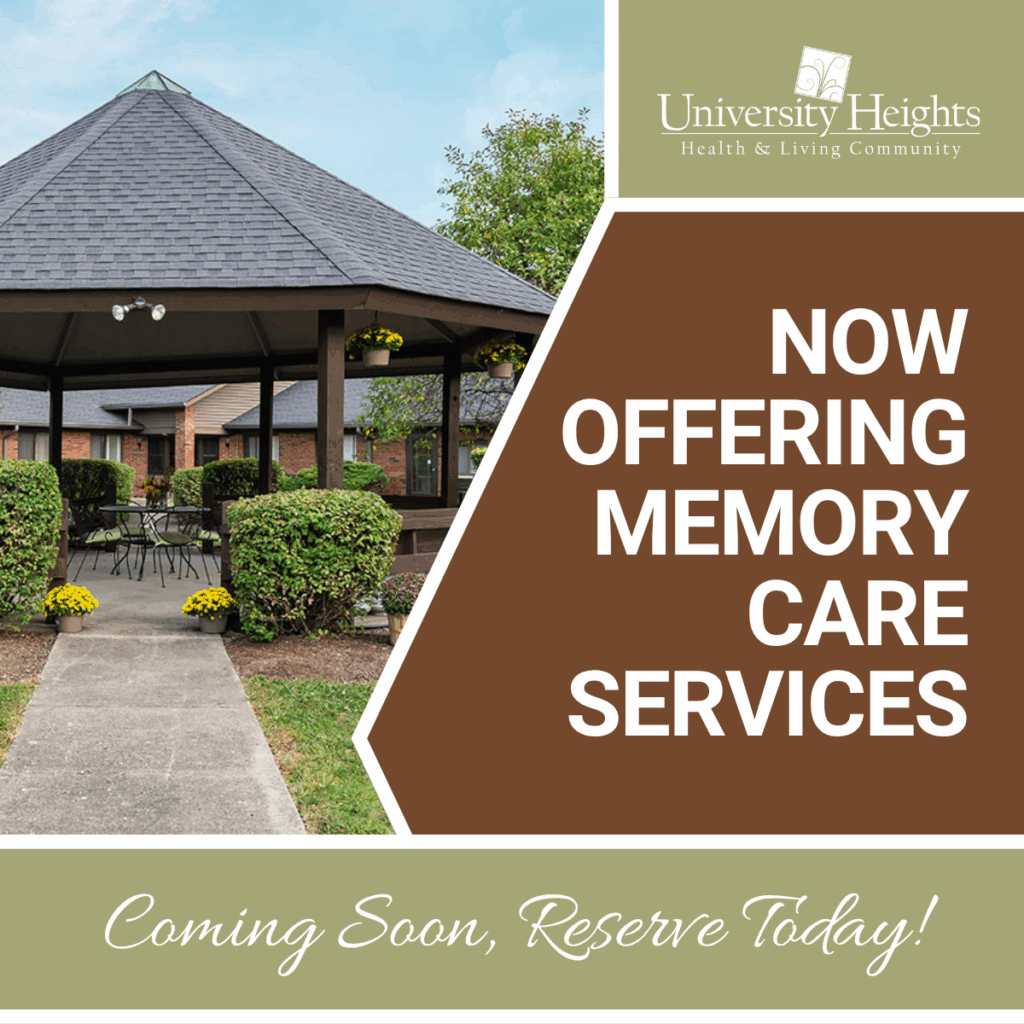
As we get older, our minds grow occupied with worries and reminders of daily responsibilities. We leave our coffee on the counter, forget our keys, fail to feed the dog, etc. These are natural occurrences in life, but they can also be warning signs of a more severe condition like dementia.
Warning Signs of Early to Severe Dementia
- Losing keys
- Forgetting to pay a bill
- Forming strategies to deal with memory impairment (putting fobs on keys, labeling cabinets and drawers, etc.)
- Forgetting a familiar route (to the grocery store, your doctor’s office, your home)
- Struggling to follow the sequence of steps involved in daily tasks, such as taking a shower, getting dressed, making coffee, etc.
- Not knowing where you are or how you got there
- Forgetting names of loved ones
Jennifer Zietlow, a speech-language pathologist for CarDon & Associates’ dementia program, points to the Global Deterioration Scale as the best tool for determining someone’s stage of dementia. This seven-point scale indicates the level of memory loss based on increasingly severe signs like the ones listed above.
“With someone in a stage one case, outsiders probably wouldn’t recognize them as someone with dementia, but internally, that person might think, ‘I used to remember that’ or ‘That used to come easy to me,’ or ‘This task didn’t previously take me as much time as it does now,’” Zietlow said. “Stage two is slightly more progressive, so people might recognize their loved ones’ memory failures, differences in behavior, changes in emotions and reactions to certain situations. At stage three, we call that level of memory loss a mild cognitive impairment. Stage four is moderate. Five is moderate to severe. Six is severe. And seven is severe to profound.”
People in stages one and two can likely live comfortably and independently, but people in stages three and four may need assisted living. Those in later stages likely require 24-hour skilled nursing at a senior living community. Family care at home can also go a long way in helping a loved one to adjust.
How to Help at Home
The first step is talking to your loved one, which can be difficult since they may not want to admit or accept that they are facing any sort of mental decline. You want to be careful not to lecture but to include them in the conversation and decision to seek help.
Taking your loved one to a neurologist is another important early step, as prescription therapies are available to prevent the progression of dementia.
“But one of the biggest challenges people with dementia face is forgetting to take their medication,” said Christy Johnson, the director of LifeSpan Therapy at CarDon. “That’s when it’s time for their family to intervene and remind them. They can also make the house safer by locking the basement door, unplugging the stove or being in charge of the car keys.”
Seeking home healthcare providers, such as physical and occupational therapists, to assist with daily living activities can also be helpful before making the transition to a senior living community.
Communities with Memory Care
CarDon has a great memory care program for people in the mid-to-late stages of dementia. Secured for the safety of the residents, the program provides physical, occupational and speech therapy as well as activities tailored to each resident’s abilities.
“We strive to emphasize each resident’s abilities and focus on what they can do rather than what they can’t,” Zietlow said. “Through CarDon’s Heart of Caring dementia program, we have a color-coded system for identifying a resident’s stage of dementia and the activities they can do at that stage.”
Activities include making memory boxes full of mementos and family photos as well as listening to music, which can improve memory. The program also includes a place for playing games that keep residents sharp and engaged.
CarDon’s Heart of Caring program provides intensive dementia training for all of CarDon’s business associates, whether they’re therapists, certified nursing assistants, housekeepers or dietary staff members. Everyone is highly educated in interacting compassionately with memory care residents and helping them live independently.
“Dementia is a progressive disease, but there are ways to easily detect it early on and keep it at bay,” Zietlow said. “Family support is key along with great communities like CarDon’s.”




